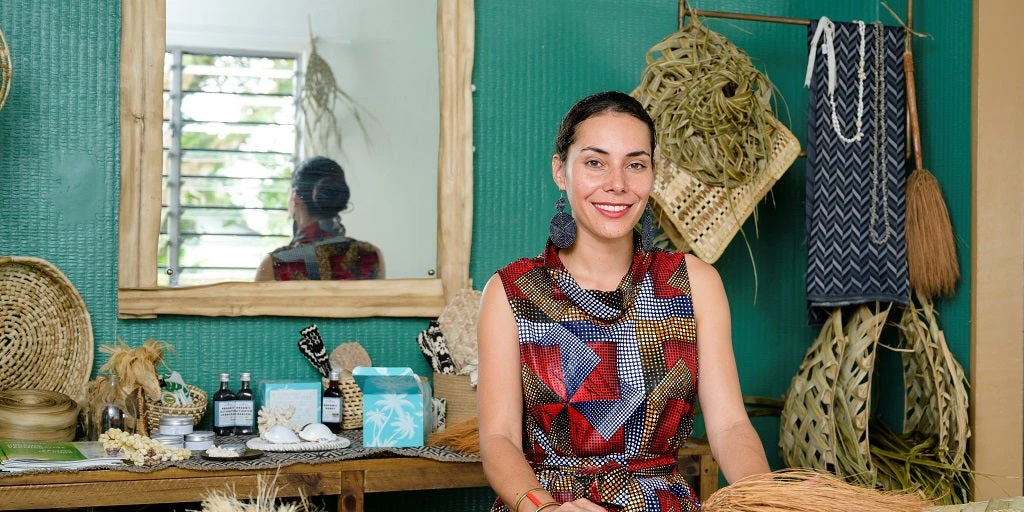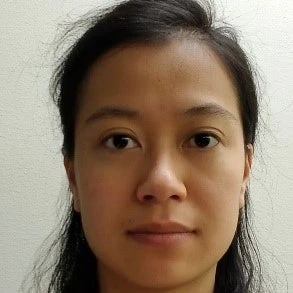 kirwin loving islands social enterprise fiji
kirwin loving islands social enterprise fiji
Imagine this scenario. You operate a small business specialized in making clothing accessories. Your business has been doing well in the domestic market and the products are gaining popularity. You are even getting enquiries asking if you sell internationally.
This gets you excited about opportunities to scale up the business. You start thinking seriously about expanding and connecting to buyers and other sellers in neighboring countries or even further abroad.. You decide that importing some materials from an overseas supplier could help you tailor products to new markets. How do you find information on how to import or export? Where can you go for help? If you are a woman entrepreneur, you may encounter challenges because of your gender. Women traders often face policy and legal obstacles and gender-biased sociocultural norms, higher tariff and nontariff barriers, and lack of access to technology, finance, and education. The challenges seem daunting and complex. Do you pursue the idea of expanding your business to international markets or do you continue to only sell domestically?
The scenario you just read is hypothetical, but the challenges are real. While trade can be an engine of growth that creates jobs, reduces poverty, and increases economic opportunity, traders often experience cumbersome and costly border processes and procedures that prevent them from growing their businesses. For women traders, evidence suggests the challenges are often bigger. Global data gaps on the exact nature of the barriers that they face, make it harder to address them.
To better understand the trade environment for women and identify opportunities to make it easier for female-owned firms to trade, the World Bank Group (WBG) surveyed over 6,500 traders and customs clearing agents across eight countries (Pacific region, including Fiji, Papua New Guinea, Samoa, Timor-Leste, and Vanuatu; Brazil; Philippines; and South Africa).
Border processes and procedures are often assumed to be non-discriminatory in design; however, our collection of gender-disaggregated data shows that the women-led firms often face greater trade facilitation challenges than those led by men.
Finding Trade-Related Information
The first step to trading internationally and making informed business decisions is finding information. Accessing and understanding official regulations and procedures is important for transparency, compliance, and predictability of the trading environment. If traders are unaware of new trade rules and regulations, or if they cannot understand them, they may face additional compliance burdens and costs for not properly meeting requirements. According to our study in the Pacific region, more women traders in Papua New Guinea and Samoa, for instance, have difficulty in finding information on border regulations and procedures than their male counterparts. In the Philippines, more women than men customs brokers reported that not all agencies keep information up to date, that official government websites and enquiry points are not responsive, and that there is a lack of comprehensive information across agencies. South African women traders similarly said official information was scarce, and that they rely on personal networks and customs agents as sources of information.
Understanding Border Processes and Procedures
Once the necessary trade information is located, more of the surveyed women than men traders and customs agents said they had trouble understanding it. This was the case for women customs brokers in Brazil, the Philippines, South Africa, Fiji, and Papua New Guinea. more women traders said they found the official regulations and processes difficult to understand than men traders.
Filing Pre-Declarations
Being able to submit the required documents for import before the goods arrive at the port or border (known as “pre-declaration” or “pre-arrival processing”) can help speed up the release of goods by Customs and reduce the overall time to trade. Across the five surveyed Pacific countries, however, fewer women than men traders are aware that it is possible to pre-declare goods.
Making Electronic Payments
A critical step in importing and exporting is the payment of official fees and charges. The possibility to make these payments electronically reduces the need for traders to carry cash for payments, minimizing the risk of theft and opportunities for corruption. There is a gender gap in the awareness that electronic payment systems even exist in Papua New Guinea, Timor-Leste, and Vanuatu. In South Africa, more men than women traders and customs brokers are aware that all official fees can be paid electronically in a single payment, rather than in separate payments to each border authority.
Engaging with the Government through Consultations
When an entrepreneur starts trading internationally or more frequently, changes in trade rules and regulations affect them. In the surveyed Pacific countries (except for Samoa), fewer women-led businesses are regularly consulted by the government on matters related to border processes. In middle-income countries, such as Brazil, the Philippines, and South Africa, we observed similar responses between men and women traders, but we observed a reverse gender gap in Brazil and the Philippines where slightly more men compared to women traders reported that they are never or regularly consulted. Having a mechanism in place whereby stakeholders are consulted on changes to official border processes and procedures can alleviate misinformation and thereby improve compliance.
These are just some of the trade facilitation-related challenges that women traders, and sometimes men traders, face when undertaking cross-border trade. Other challenges include issues with permits, finances, and other non-tariff measures.
For women entrepreneurs considering expansion into international markets, the costs and time challenges may discourage business expansion through trade. The World Bank Group produced comprehensive country-level reports of the survey findings with recommendations on how to address the general and gender-specific constraints identified to help reduce the time and costs to trade for the private sector. We hope these reports help to raise awareness of the gender-specific constraints to trade and addressing these are critical to making the trade environment more friendly for businesses, helping businesses grow, and increasing access to new markets.
Financial support for these World Bank Group surveys was provided by the Trade Facilitation Support Program (TFSP) and the Trade Facilitation Program in Middle Income Countries (TFMICs). The TFSP is funded by nine donor partners: Australia, Canada, the European Commission, the Netherlands, Norway, Sweden, Switzerland, the United States, and the United Kingdom. TFMICs was funded by the UK Foreign, Commonwealth, and Development Office (FCDO) Prosperity Fund.



Join the Conversation